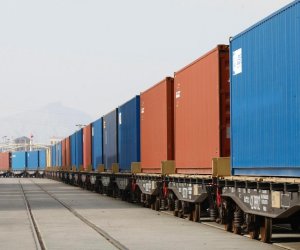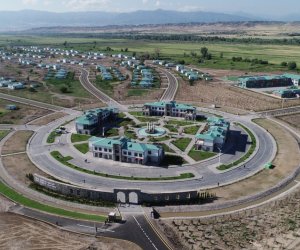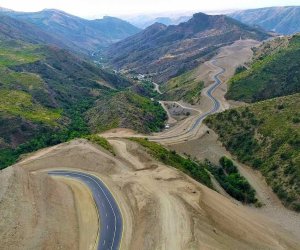Azerbaijan's productivity challenge

Azerbaijan is at a turning-point in its economic development. Output from the oil sector, which over the last decade has been the motor of the country's economy, will rise slowly in 2014-15, and is expected to peak in 2016. Future growth will therefore come largely from the non-oil sector.
Despite high investment (much of it state-backed) in fixed capital, the competitiveness of the non-oil sector has been eroded over the last ten years by rapid wage growth, which until recently outstripped productivity gains.
With the cost of labour now significantly higher in Azerbaijan than its neighbours, the government needs to foster entrepreneurialism and innovation, in order to ensure that it maintains productivity growth.
In 2013 the oil sector accounted for 48% of nominal GDP; however, output grew by just 0.7% in real terms, according to preliminary figures. Rebalancing the economy away from the energy sector is therefore a pressing policy priority for the government.
To achieve this, the authorities need to find ways to improve productivity in the non-oil sector. Growth in output per worker in the non-energy sector has lagged behind growth in real wages over the past ten years, with negative implications for the country's competitiveness.
Azerbaijan has recorded impressive economic growth, with value added per worker rising by just over 12% a year in real terms during 2004-12. Average real wages over this period have risen at a similar rate-11.8% a year-as a result of which the overall competitiveness of the economy on this measure has remained almost unchanged.
In the non-oil sector, however, growth in real wages has outstripped that of the economy as a whole. In 2004-12 value added per worker increased at an annual average of 8.5%, while real wages grew by 13.5% year on year. The worst-performing sector in terms of competitiveness has been agriculture, which accounts for 38% of the working population.
In this sector, real wages have risen at an annual average of almost 20%, while the sector has grown at an annual average of just 3.2% in real terms. Despite rapid headline growth over the past decade, the sector, which accounts for the largest share of employment in Azerbaijan, is also its least productive.
The rapid rise in wages in the non-oil sector partly reflects the success of government efforts to share the fruits of Azerbaijan's oil boom among the general population. As growth from the oil sector slows, however, the competitiveness of the non-oil sector will become an increasing concern.
There are indications that wage restraint is already improving: in 2010-12 value added per worker rose faster (8.1% a year) than wages (5.3%). In the case of agriculture, however, growth in real wages continues to outstrip value added per worker. To improve productivity, the agricultural sector needs to consolidate by reducing the number of self-employed farmers and smallholdings. To achieve this, however, other sources of potential growth and employment will be required to offset job losses.
Improving the institutional environment to encourage greater entrepreneurialism is therefore a policy priority for the government, as entrepreneurs tend to be the drivers of innovation, and in so doing improve productivity and competitiveness. This is particularly important as growth in government spending is likely to be significantly slower over the forecast period than in the past decade. Total budget expenditure is forecast to rise by only 1% in 2014, owing to lower transfers from the state oil fund. This means that the level of state investment in expanding capital stock (another potential source of productivity improvements) will be lower than in the past decade.
However, entrepreneurialism in Azerbaijan is impeded by the poor business environment. The government appears to be aware of the challenge, and has made progress in tackling some of the technical obstacles to business, such as simplifying procedures for business registration and the acquisition of permits. The government has introduced a one-stop shop for business registration under the aegis of the Ministry of Taxes, which merges the responsibilities previously shared between five separate agencies.
A new centralised electronic registry for business inspections has also been established. According to a report by the World Bank, Fostering Entrepreneurship in Azerbaijan, published in 2013, in the first year of operation of the new regulations, business registrations increased by over 30%.
However, as the World Bank report also notes, significant impediments to entrepreneurship persist in Azerbaijan. Limited access to financing remains a major barrier to new enterprise. As discussed in a previous analysis, the banking sector is still underdeveloped and uncompetitive, as a result of which borrowing costs remain high, and banks are reluctant to lend to small and medium-sized businesses.
The World Bank report also notes a lack of industry-relevant skills. Based on a representative survey of Azerbaijani businesses, the report concludes that "drastic reforms need to be made to address the existing skills gap in the economy".
Pervasive government ownership and weak institutions (including poor protection of intellectual and property rights) also deter new entrepreneurs, leading the report's authors to conclude that "[...] in Azerbaijan, few people want to become entrepreneurs, few attempt to start a business, and few succeed at doing so."
(EIU)
ANN.Az
Latest news 
More news 



































 Photo
Photo 



 Video
Video 

